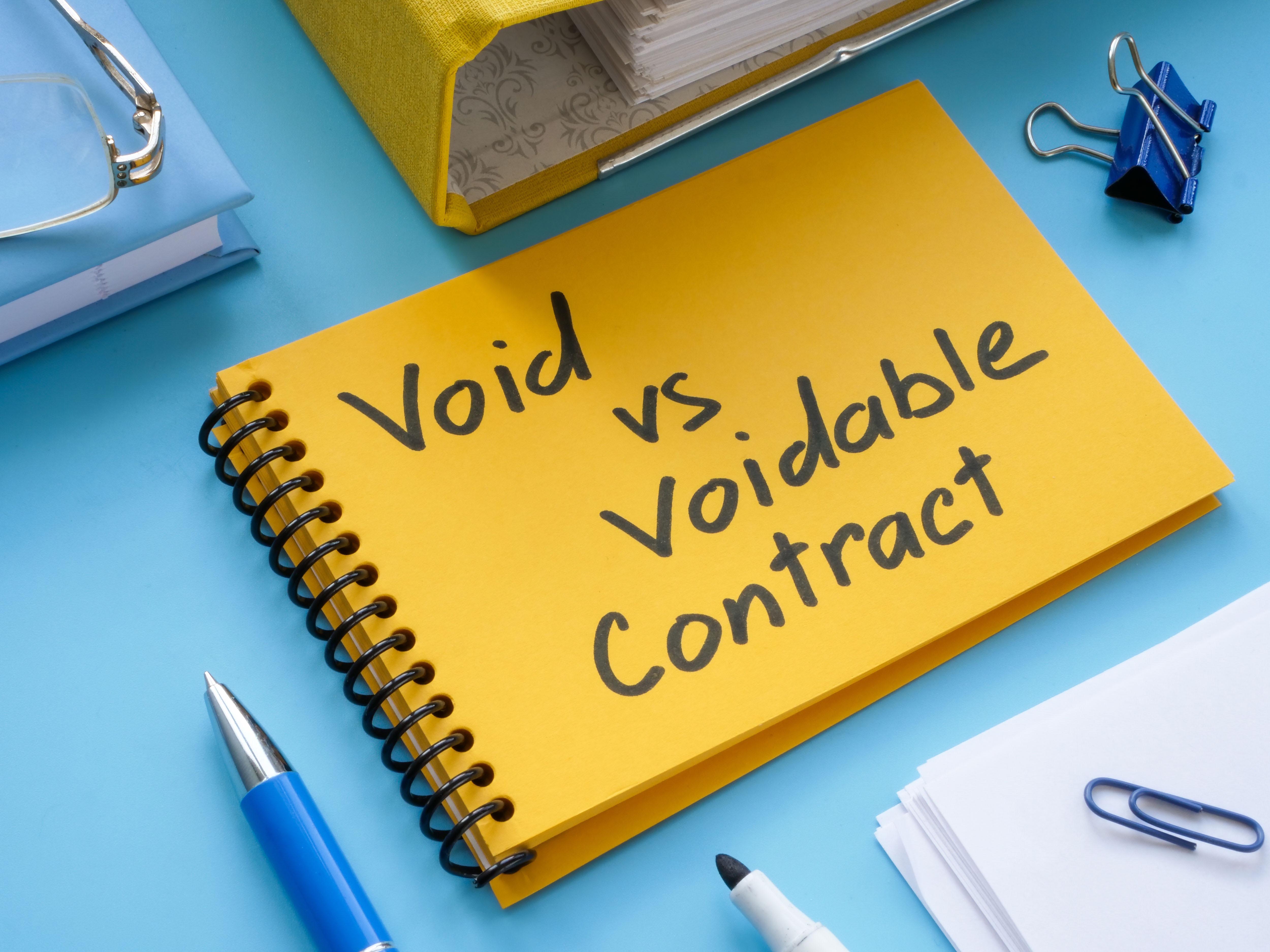
In real estate school, you learn that contracts are the backbone of all real estate deals. But there's more to contracts than meets the eye, especially when they go sideways. In this article, we'll demystify the difference between two confusing terms: 'void' and 'voidable' as it relates to contracts.
Contracts 101
A contract is a promise that the law will enforce. It comprises a few parts: an offer, acceptance of the offer, and something valuable being exchanged by capable parties.
Void Contracts in Real Estate
A void contract is a promise that the law won't enforce. Imagine a person who isn't the actual owner of a property trying to sell a property they don't own. If someone tries to sell a house they don't own, that's likely an example of a void contract. In these cases, the law assumes that the contract never existed.
Another example of a void contract would be a contract to sell someone illegal drugs. The legality of the contract is a fundamental requirement for it to be valid. This means an agreement has to be for something legal. If it's not, the law won't recognize or enforce it
Therefore a contract to sell illegal drugs is void because selling illicit drugs is against the law. Since it's illegal, a contract to sell illegal drugs doesn't fulfill the requirement of legality.
In other words, you can't have a contract to do something illegal. That's why a contract like this is void - it's invalid from the start. So, if someone made a contract to sell illegal drugs and broke that contract, the other person couldn't take them to court. The court would say that the contract was void. The contract couldn't be enforced because it was to do something illegal.
Voidable Contracts in Real Estate

A voidable contract, on the other hand, is a contract that could work, but one person involved has the choice not to follow through with it. In these situations, the contract could become voidable.
A voidable contract is different from a void contract - It's a valid contract, but one party can agree or say no. Only one party is truly bound to the contract. The other party, who isn't bound, can say they don't want the contract anymore, and at that point, it becomes void or non-existent.
There are several reasons a contract might be voidable. These can include someone being forced or tricked into the contract, not understanding what they're agreeing to because of mental issues, being drunk, or lying about something important. Contracts made by minors (people under 18) are usually voidable, but they can only say no to the contract while they're still a minor and for a short time after they become an adult.
If a contract is made without the true agreement of one of the parties, it's considered a voidable contract. The law says a voidable contract can be enforced if one or more parties want it but not if the other parties don't want it to be. A voidable contract can become valid if the party who was wronged doesn't say they want to cancel it within a reasonable time.
Key Differences Between Void and Voidable Contracts
Although 'void' and 'voidable' may sound similar, they are distinct regarding contracts. Here's a breakdown of the major differences between them:
Understanding these differences is crucial when dealing with real estate contracts. Carefully examining all terms and conditions can save you from unknowingly entering into void or voidable contracts, thus avoiding potential legal disputes or financial losses. Always consult a legal professional if you need clarification on a contract's terms or legality.
One other way to look at void and voidable
When you hear "void" about contracts, it means it's "nonexistent." It's like a rule that never counted from the start because it breaks some important laws or needs to include something required to make it a real contract.
Then there's "voidable," which suggests it could be void but not yet. The contract can still work, but there's a choice. One person in the contract can say it's void or let it stay as it is.
A void or "nonexistent" contract doesn't give any choices - it's just void. But a voidable or "potentially void" contract lets one person decide if it becomes void. That should help you tell the difference between the two.
Understanding the difference between void and voidable contracts is vital in real estate. It's as crucial as knowing when to when to walk away from a listing or the importance of a home inspection. Always remember to get professional help and check all contracts carefully.
As your online real estate school, we're here to help you understand these complex topics. We'd love to hear from you if you have any questions and remember, if you need more clarification, always ask a professional for help.
Love,
Kartik
Why People Fail the California Real Estate Exam
Best Way to Study for the California Real Estate Exam
Best Time of Day to Take the CA Real Estate Exam

Founder, Adhi Schools
Kartik Subramaniam is the Founder and CEO of ADHI Real Estate Schools, a leader in real estate education throughout California. Holding a degree from Cal Poly University, Subramaniam brings a wealth of experience in real estate sales, property management, and investment transactions. He is the author of nine books on real estate and countless real estate articles. With a track record of successfully completing hundreds of real estate transactions, he has equipped countless professionals to thrive in the industry.